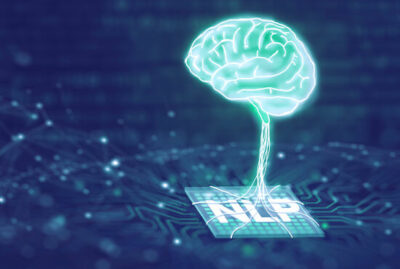In today’s ever-evolving medical landscape, the emergence of Medical Large Language Models (LLMs) has sparked a paradigm shift in the field of disease diagnosis and treatment. These powerful AI-driven models, trained on vast amounts of medical data, are reshaping the way healthcare professionals approach clinical decision-making. With their ability to analyze and interpret complex medical information, Medical LLMs hold tremendous promise in enhancing diagnostic accuracy, improving treatment outcomes, and ultimately transforming patient care.
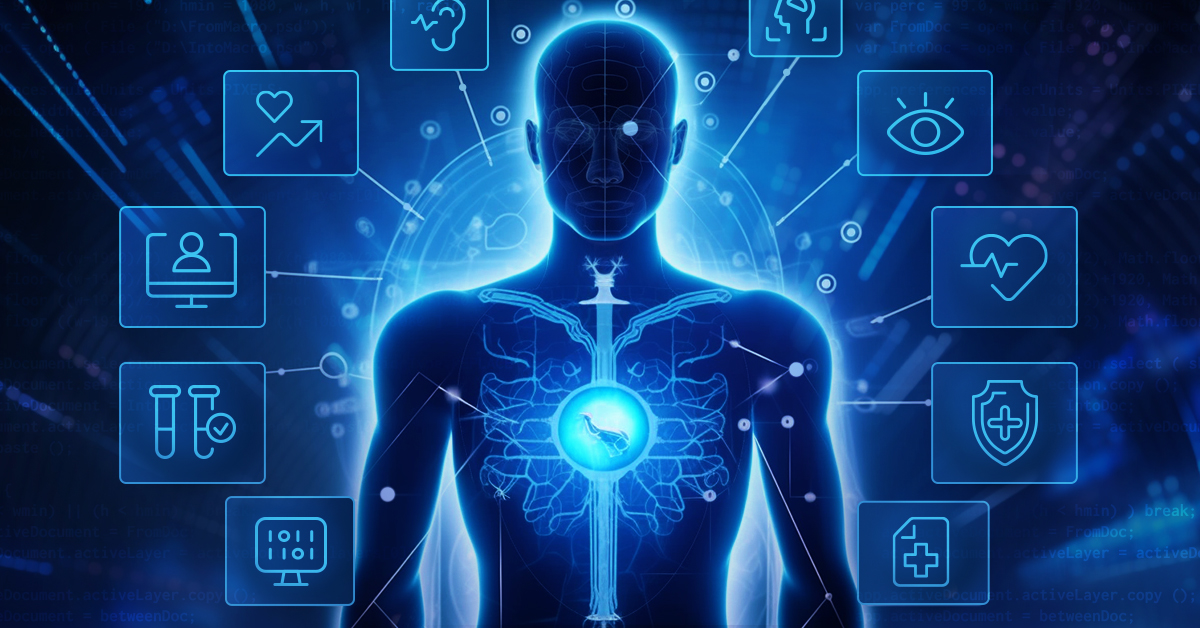
Are you curious about Medical LLMs and their growing significance in medical settings? Picture a world where cutting-edge technology helps healthcare professionals make informed decisions, improving treatment outcomes and patient safety. Healthcare LLMs hold the key to unlocking this potential, leveraging vast amounts of medical data to comprehend intricate medical language and extract valuable insights.
By analyzing diverse data sources and identifying hidden patterns, Healthcare LLMs can push the boundaries of diagnostic accuracy, early disease detection, and personalized medicine. Beyond individual patient care, these models have the potential to revolutionize medical research, fueling breakthroughs in disease understanding, biomarker identification, and drug discovery.
LLM for Medical Diagnosis: a Revolution in Disease Diagnostic
Medical/healthcare Large Language Models (LLMs) have brought about a paradigm shift in disease diagnosis, leveraging their advanced AI capabilities to transform the way healthcare professionals approach this critical task. In this section, we will explore how healthcare LLMs have revolutionized disease diagnosis.

Enhanced Pattern Recognition and Analysis with Healthcare LLMs
Medical LLMs can analyze vast amounts of medical data and extract valuable insights that aid in accurate and timely diagnoses. By processing electronic health records, medical literature, and patient data, these models can identify complex patterns and associations that might otherwise go unnoticed. For instance, in the field of cardiology, healthcare LLMs have been employed to analyze electrocardiogram (ECG) data and detect subtle abnormalities that can indicate underlying heart conditions. This assists cardiologists in making precise diagnoses and implementing appropriate treatment strategies.
Rapid Assessment of Medical Images using Healthcare LLMs
Medical LLMs excel in the analysis of medical images, including radiological scans, pathology slides, and dermatological images. By processing these images and comparing them to extensive databases, healthcare LLMs can identify subtle indicators of disease, leading to improved diagnostic accuracy. For example, in radiology, healthcare LLMs have demonstrated the ability to detect abnormalities in mammograms, such as suspicious masses or microcalcifications, aiding in the early detection of breast cancer. This image processing makes LLM for medical diagnosis a revolutionary solution that will take image-based disease diagnosis to another level.
Data-Driven Clinical Decision Support using Healthcare LLMs
Medical LLMs serve as valuable tools for clinical decision support, providing healthcare professionals with evidence-based recommendations and guidance. By analyzing patient data, medical literature, and treatment guidelines, healthcare LLMs can assist in determining the most appropriate diagnostic tests, treatment options, and medication choices. This empowers physicians to make well-informed decisions and deliver personalized care to their patients.
Early Disease Detection and Risk Assessment with Healthcare LLMs
Healthcare LLMs play a vital role in early disease detection and risk assessment by analyzing various patient factors, including symptoms, medical history, and biomarker data. LLM for medical diagnosis is the solution to identifying subtle indicators of disease progression and assessing an individual’s risk of developing certain conditions. By identifying high-risk individuals, healthcare providers can intervene earlier, potentially preventing or mitigating the disease’s impact.
Medical LLMs in Enhanced Treatment Planning
Medical Large Language Models (LLMs) have revolutionized treatment planning by leveraging their advanced AI capabilities to analyze patient data, recommend personalized treatment options, and predict treatment outcomes. In this section, we will explore how Medical LLMs contribute to more effective treatment planning.
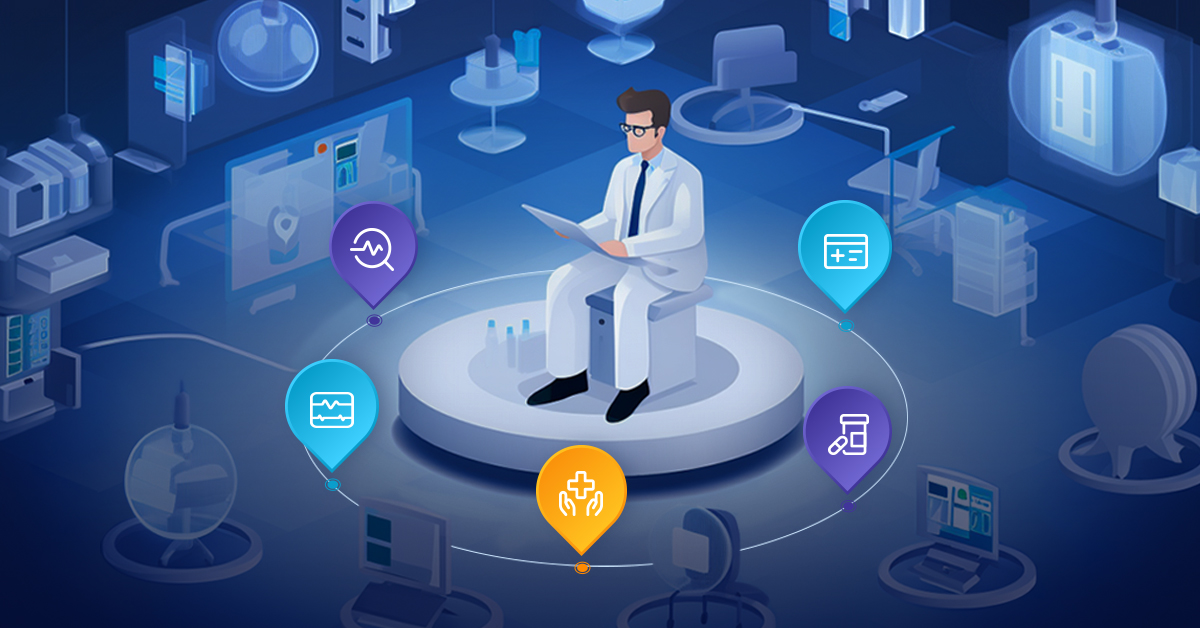
Healthcare LLMs in Analysis of Comprehensive Patient Data
Medical LLMs excel at analyzing vast amounts of patient data, including electronic health records, medical literature, genomic information, and treatment guidelines. By assimilating and processing this data, healthcare LLMs can identify relevant patterns and correlations that aid in treatment planning. For instance, in the field of oncology, healthcare LLMs can analyze a patient’s genetic profile, tumor characteristics, and treatment history to predict their response to specific therapies. This enables oncologists to develop tailored treatment plans that maximize efficacy and minimize side effects.
Personalized Treatment Recommendations
Medical LLMs can generate personalized treatment recommendations by considering a patient’s unique characteristics, including their medical history, comorbidities, lifestyle factors, and treatment preferences. These models leverage their vast knowledge base to suggest optimal treatment options based on evidence-based guidelines and clinical expertise. By tailoring treatment plans to individual patients, healthcare LLMs enhance treatment efficacy and patient satisfaction.
LLM for Medical Diagnosis: Predicting Treatment Outcomes
Medical LLMs possess the ability to predict treatment outcomes by leveraging historical patient data and treatment response patterns. These models can consider factors such as patient demographics, disease severity, treatment protocols, and biomarker profiles to estimate the likelihood of treatment success or failure. By providing insights into potential treatment outcomes, healthcare LLMs aid in shared decision-making between patients and healthcare providers.
Healthcare LLMs in Optimizing Treatment Sequencing
Medical LLMs assist in determining the optimal sequence of treatments for patients with complex or advanced diseases. By analyzing treatment response data from similar patients and considering factors such as disease stage, biomarker profiles, and potential drug interactions, healthcare LLMs can recommend the most effective order and timing of treatments. This ensures a comprehensive and coordinated approach to patient care.
Medical LLMs in Precision Medicine and Personalized Care
Medical Large Language Models (LLMs) play a pivotal role in supporting the advancement of precision medicine by leveraging their AI capabilities to analyze genetic information, biomarkers, and patient characteristics. In this section, we will explore how Medical LLMs contribute to precision medicine and personalized care.
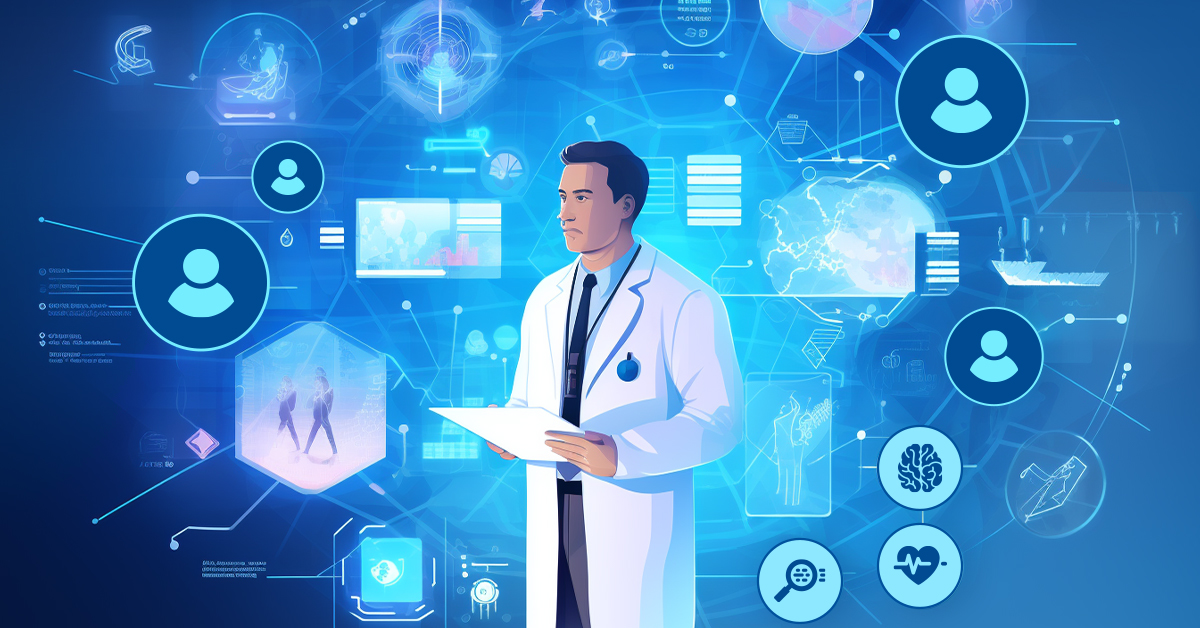
Analyzing Genetic Information with Healthcare LLMs
Medical LLMs have the ability to analyze complex genetic information, such as genomic data and genetic variations, and identify potential disease risks, predict treatment responses, and guide personalized interventions. By processing and interpreting genetic data, healthcare LLMs can offer insights into the underlying mechanisms of diseases and help identify targeted therapies tailored to an individual’s genetic profile.
For instance, in the field of oncology, healthcare LLMs can analyze a patient’s genetic mutations and alterations, such as BRCA1/2 mutations in breast cancer. Based on this analysis, the healthcare LLM can provide information on the patient’s increased risk of developing certain cancers and suggest targeted therapies, such as PARP inhibitors, which have shown promising results in patients with specific genetic mutations.
Biomarker Analysis with Healthcare LLMs
Medical LLMs excel at analyzing biomarkers, including protein levels, gene expressions, and specific cellular markers, to guide personalized treatment decisions. By evaluating biomarker data alongside other patient information, LLMs can assist healthcare providers in selecting the most appropriate therapies, monitoring treatment responses, and predicting disease progression.
For instance, in the field of rheumatology, a healthcare LLM can analyze biomarker data, such as levels of inflammatory markers like C-reactive protein (CRP) or rheumatoid factor (RF), in patients with autoimmune diseases like rheumatoid arthritis. Based on this analysis, the healthcare LLM can help rheumatologists determine the disease activity and select targeted therapies, such as biologic agents or disease-modifying antirheumatic drugs (DMARDs), tailored to the individual patient’s needs.
Tailoring Treatments for Individuals with Healthcare LLMs
Medical LLMs contribute to personalized care by considering a patient’s unique characteristics, such as age, gender, medical history, lifestyle factors, and treatment preferences, when recommending treatment plans. By synthesizing vast amounts of medical knowledge and patient-specific data, healthcare LLMs enable healthcare providers to offer tailored interventions that align with an individual’s needs and optimize treatment outcomes.
For instance, in diabetes management, a healthcare LLM can analyze a patient’s medical history, blood glucose levels, medication regimen, and lifestyle factors. Based on this analysis, the healthcare LLM can suggest personalized treatment plans, including specific dietary recommendations, exercise routines, and medications, to help the patient achieve optimal glycemic control and manage their diabetes effectively.
Medical LLMs in Accelerating Medical Research
Medical Language Models (LLMs) have emerged as powerful tools in accelerating medical research by leveraging their AI capabilities to analyze vast amounts of research data, identify patterns, and generate valuable insights for the development of new treatments and therapies. In this section, we will explore how Medical LLMs contribute to accelerating medical research.
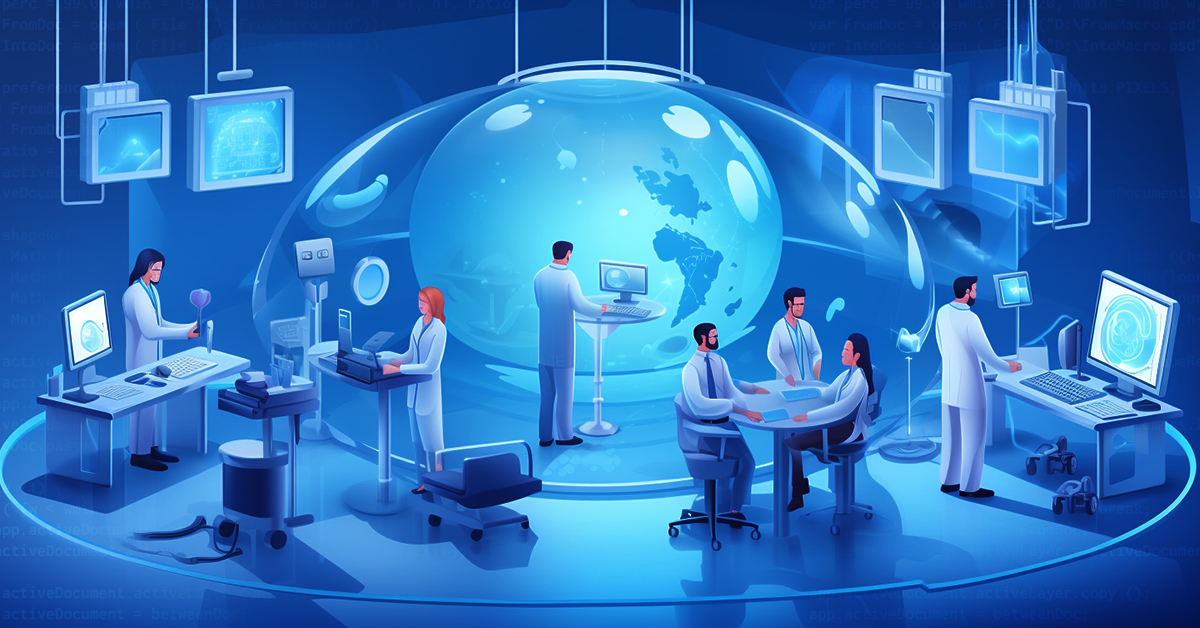
Healthcare LLMs in Analyzing Research Data
Medical LLMs can process and analyze extensive research data, including scientific articles, clinical trials, and patient records, with remarkable speed and accuracy. By understanding the context and extracting meaningful information from this data, healthcare LLMs enable researchers to gain a comprehensive overview of existing knowledge and identify gaps for further investigation.
For instance, in the field of cancer research, healthcare LLMs can analyze a wide range of scientific literature, clinical trial results, and genomic data to identify potential biomarkers associated with treatment responses. This analysis can help researchers uncover new therapeutic targets, design more effective clinical trials, and contribute to the development of innovative cancer therapies.
Identifying Patterns and Trends
Medical LLMs excel at identifying patterns and trends within complex research datasets, facilitating the discovery of novel insights and correlations. By analyzing large volumes of data, healthcare LLMs can reveal hidden relationships and provide researchers with valuable information to formulate hypotheses and guide future investigations.
For instance, in the domain of neurodegenerative diseases, healthcare LLMs can analyze extensive datasets containing neuroimaging data, genetic information, and clinical records. By identifying patterns and correlations, healthcare LLMs can assist researchers in understanding disease progression, identifying early diagnostic markers, and uncovering potential therapeutic interventions.
Healthcare LLMs in Generating Insights for New Treatments and Therapies
Medical LLMs contribute to medical research by generating insights and hypotheses for the development of new treatments and therapies. By synthesizing existing knowledge and analyzing research data, healthcare LLMs can propose innovative approaches and highlight potential areas of exploration, accelerating the discovery of groundbreaking interventions.
For instance, in the field of cardiovascular research, Medical LLMs can analyze large-scale clinical data, including patient demographics, medical histories, and treatment outcomes. By identifying patterns and associations, healthcare LLMs can suggest novel therapeutic strategies, such as personalized preventive interventions or innovative pharmacological approaches, to reduce the risk of cardiovascular diseases.
Medical LLMs in Disease Diagnosis: Conclusion
Medical LLMs have revolutionized disease diagnosis and treatment, offering numerous benefits to healthcare providers, patients, and the overall healthcare system. By analyzing vast amounts of medical data, the use of LLM for medical diagnosis increases the accuracy and speed of diagnosis, supports personalized treatment planning, promotes precision medicine, and accelerates medical research.
John Snow Labs, a leading provider of healthcare AI solutions, has embraced the potential of Medical Large Language Models (LLMs) in disease diagnosis and treatment. Leveraging cutting-edge technologies such as Spark NLP and Healthcare NLP, John Snow Labs is at the forefront of utilizing Medical LLMs to improve healthcare outcomes. Through their advanced NLP tools, John Snow Labs has developed models that can accurately extract clinical entities from radiology reports, enabling radiologists to identify important findings and make informed treatment decisions. This technology has the potential to significantly enhance patient care and support medical professionals in their daily practice.
Whether you are a healthcare provider, researcher, or industry stakeholder, join hands with John Snow Labs to integrate Healthcare LLMs into your practice, advance medical knowledge, and improve patient outcomes. Discover how large language models can revolutionize the way you diagnose and treat diseases, opening new avenues for precision medicine, personalized care, and accelerated medical research.
Together with John Snow Labs, let’s harness the power of Medical LLMs to transform healthcare and make a positive impact on the lives of patients worldwide.
FAQs about the Impact of Medical LLMs on Disease Diagnosis
Here are the frequently asked questions about the impact of Medical LLMs on disease diagnosis and treatment.
1. How do Medical LLMs contribute to more accurate disease diagnosis?
Utilizing advanced Natural Language Processing (NLP) algorithms, Healthcare LLMs can analyze vast amounts of medical data, including clinical texts and imaging reports, to extract relevant information and assist in accurate disease diagnosis.
2. Can Medical LLMs recommend personalized treatment options?
Yes, Medical LLMs have the capability to analyze patient data, such as genetic information, biomarkers, and medical history, to recommend personalized treatment options tailored to the individual’s specific needs and characteristics.
3. How do Medical LLMs revolutionize precision medicine?
Medical LLMs play a crucial role in precision medicine by analyzing genetic information, biomarkers, and patient characteristics. This enables healthcare professionals to develop targeted treatment plans that address the unique aspects of each patient’s condition, leading to more effective and personalized care.
4. Do Medical LLMs accelerate medical research?
Absolutely. By analyzing large volumes of research data, Healthcare LLMs can identify patterns and generate valuable insights for new treatments and therapies. This accelerates the pace of medical research, potentially leading to groundbreaking discoveries and advancements in healthcare.
5. What are the ethical considerations associated with Medical LLMs in disease diagnosis and treatment?
Ethical considerations include ensuring patient privacy and data security, addressing potential biases in the algorithms and data used by Healthcare LLMs, and maintaining transparency and accountability in the decision-making process.























